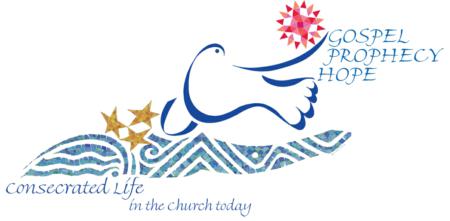So why are we celebrating the Year of Consecrated Life?
I am frequently asked these questions. Why is this year so important? Isn't the consecrated life an artifact of the past? Aren't diminishing numbers and fewer vocations indications that God has something else in mind for religious communities? Aren't our youth and young adults looking for more substantive career options? So often the questions focus on numbers and benchmarks more appropriate for corporate boardrooms rather conversations about charism, mission and service to the people of God. The Year of Consecrated Life is an invitation to reflect on the words of Staring Afresh from Christ (2002)... the consecrated life has a story yet to be written.
The history of consecrated life is a moving love story. Brothers, sisters, religious priests, hermits, consecrated virgins and members of secular institutes have dedicated themselves untiringly to the service of the Church and the faithful in schools, hospitals, social service agencies, pro-life ministries, safe houses, literacy centers, prisons, immigrations services, nursing homes, hospice care street ministries and so much more. Wherever there has been a pressing pastoral need, consecrated men and women have tended to be there with creative response, prayerful presence, compassionate support. Consecrated men and women offer a beacon of hope in a secular culture that is often indifferent to the plight of the very poor and the marginalized.
Pope Francis has clearly the articulated the primary calls of the consecrated life:
-- To wake up the world
-- To move the Church to the margins
-- To radiate joy and make present the tenderness of God
Similar to the words and example of John the Baptist who prefigured the coming of Christ, the consecrated life points the way to the Father. Consecrated men and women provide a compass helping others to find direction in their lives by witnessing to deeper values. The consecrated life proclaims that there is something more than the immediate. Cardinal Seán frequently says that "the consecrated life witnesses to the promise of eternal life and that God indeed will have the last word in our lives."
The Year of Consecrated Life is an invitation to young women and men to consider a life of service to the Church. Why would someone respond to the Call to in 2015 when there are so many other possibilities? Meeting newer members of religious communities and journeying with those interested in religious life have given me deeper insights into the importance of the vows for the next generation. The desire to serve Christ and the Church is powerful. They describe the vowed life as the total giving of self, holding nothing back. They understand the vows to be bold and courageous counter-cultural statements. The vow of obedience is a strong counterpoint to the prevailing cultural mantra: "it's about me." The vow of chastity is reminder that all relationships are sacred. God should be a part of every human interaction. The vow of poverty demands generosity with possessions and time. The blessings of God are meant to be shared lavishly with others, especially those who are most in need.
The Year of Consecrated Life is meant to be a time for evangelization. We proclaim the wonderful news that a life dedicated to the service of the Church is rich in meaning and filled with many blessings. May God bless abundantly those who live the consecrated life and those who are discerning a call at this time!
Sister Marian Batho, CSJ, is the Delegate for Religious of the Archdiocese of Boston.



















